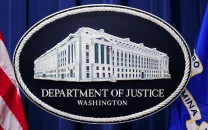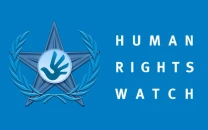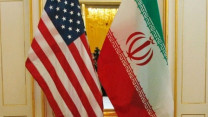The BSA conundrum
There will be enough headaches for Pakistan during and after drawdown without piling on poorly thought out BSA clauses

The writer has a master’s degree in conflict resolution from the Monterey Institute of International Studies in California and blogs at http://coffeeshopdiplomat.wordpress.co
A security agreement was recently approved by a Loya Jirga after a year of quibbling and negotiations. However, the ever-unpredictable Karzai has jeopardised the bargain by declaring that he won’t be signing it until after the elections in April. He has made several other significant demands: a complete ban on house raids conducted by the foreign military, an American pledge to help Afghanistan launch the peace process by initiating meetings between the Peace Council and the Afghan Taliban and the release of the Taliban leader, Ghani Baradar, who was captured in Pakistan as a result of a joint mission between the Pakistani and American forces. When it was suggested that the deal could be signed by someone other than Karzai, for instance, the defence minister, Karzai declared that none of his ministers would sign the deal till the new conditions have been met.
Karzai stated that the special representative to the region, James Dobbins, made it clear to him that without a security agreement, there would be no peace and that the US will pull out its entire military. Forty-seven thousand US troops remain in Afghanistan and the US has been in discussions with Afghanistan about providing them with a residual training force of about 8,000 troops after the end of the Nato combat mission in 2014. Dobbins also pointed out that delaying approval of the agreement promotes uncertainty and further strains the tattered national economy.
Looking at the BSA from Pakistan’s perspective, the document is overtly intrusive. Article 6 of the BSA contains a clause regarding action against any state that ‘threatens’ Afghanistan’s territorial sovereignty. Since Afghanistan has never recognised the Durand Line and claims territory up to the Indus, Pakistan would be considered to be in a perpetual state of illegal occupation and open to joint punitive action at will. The US must recognise this flaw in the document and make revisions to avoid additional harm to their drone testing field to the east of the Durand Line. There will be enough headaches for Pakistan during and after the drawdown without piling on poorly thought out legal language.
Recent history has provided an example of what can happen following the withdrawal of security forces from an occupied nation. Dismantled physically and functionally by conflict, violence in Iraq has now reached its highest level since 2008 and more than 8,000 people have been killed this year. Discussions between the US and Iraq regarding security forces failed in a familiar fashion and eventually led to a full withdrawal of the American military at the end of 2011. Afghanistan is on a trajectory to suffer a similar fate and moves close to collapsing once again, merely two decades after the Soviets withdrew from the country.
Published in The Express Tribune, December 15th, 2013.
Like Opinion & Editorial on Facebook, follow @ETOpEd on Twitter to receive all updates on all our daily pieces.



















COMMENTS
Comments are moderated and generally will be posted if they are on-topic and not abusive.
For more information, please see our Comments FAQ